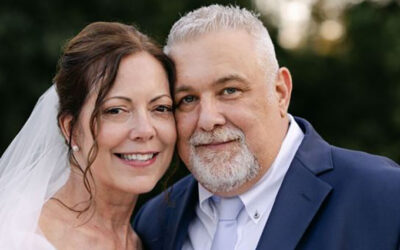Seizures in children are alarming. Even seasoned health professionals become startled when seizures happen in children under their care, so it is natural for parents to be concerned.
Kenneth Habetz, MD, pediatric neurologist with Our Lady of Lourdes Women’s & Children’s Hospital, shares what parents should know about seizures.
What Are Seizures?
Seizures involve sudden, temporary bursts of abnormal electrical activity in the brain. They can cause involuntary changes in body movement, sensation, behavior or awareness.
Every brain has the potential to seize. A seizure can be a symptom of other medical problems. Epilepsy is a neurological condition characterized by two or more unprovoked seizures in which the brain itself causes the seizures.
Use Your Phone to Help with Diagnosis
Any unusual, recurrent thing that happens over and over—such as staring, facial expressions or jerking—should be investigated as if it could be a seizure. Dr. Habetz recommends parents make use of their smartphone’s camera and record such episodes. Suspicion is not diagnosis, and video can help confirm or rule out seizure.
“Something parents can do to determine the likelihood of the seizure is to note what led to it and what were the things you attribute to it, the provoking factors,” Dr. Habetz says. “What was the situation around the episode and what was the very first thing you saw that wasn’t normal?”
Seizures can be categorized as motor or non-motor type. Motor type seizures cause movement, and non-motor type are things that may look strange.
Most Common Seizure Type
Febrile seizures are the most common type of seizure, and they are associated with fevers. But they can only happen in children between the ages of 6 months and 6 years. Seizures outside of those ages, even associated with fever, are not febrile.
Although there is nothing simple about any seizure, a simple febrile seizure means generalized convulsions in which both sides of the body look the same. A complex febrile seizure is any affecting only one side of the body or if it lasts longer than 15 minutes.
Safety During a Seizure
Keep your child safe from falling during a seizure, bring them down from heights if they are on a bed or couch and clear space on the floor or ground. Make sure there is nothing in their mouth and roll them on their side. It does not matter which side.
Seek emergency medical care for any first-time seizure, especially if
- the seizure lasts more than 5 minutes
- if your child has trouble breathing or has bluish color to lips, tongue or face
- stays unconscious more than a few minutes after seizure ends
- falls or hits their head
- seems to be sick
- has a seizure while in water
Diagnosis and Next Steps
A workup after seizures is usually an EEG (electroencephalogram), a brainwave test. Kids with epilepsy often have abnormal EEGs. Around 2/3 of children with epilepsy will grow out of it.
“You were born with this risk in you and at a certain developmental stage your brain has grown into this issue,” Dr. Habetz explains to his patients. “But the good news is that you tend to grow out of it too.”
Medication and Monitoring
Children diagnosed with epilepsy would start taking medication to limit the risk of seizures. As these patients mature their doctors may determine the risk is low enough that the medication can be stopped.
Children with epilepsy need to be monitored no matter their age. Dr. Habetz recommends a video baby monitor at night or sleeping in the same room. They cannot be left alone in standing water, including bathtubs.
The most common reason for a child diagnosed with epilepsy to have a seizure is not taking their medicine, and the second most common reason is not getting enough sleep or being sick.
Life doesn’t stop for children with epilepsy, and parents should be mindful of increased risks of depression and anxiety, especially during the period of adjustment after a new diagnosis.
There’s no indication that children with epilepsy shouldn’t play sports or be held out of activities they love. “Playing basketball doesn’t cause seizures, but taking kids out of things they love can cause depression,” Dr. Habetz says. “You have to live your life with epilepsy.”
Additional Reading
Learn more about seizures and living with epilepsy on the Epilepsy Foundation website.




